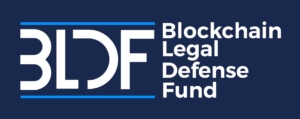Ripple Case and SEC Deadlines: The Implications for Blockchain Projects
As blockchain revolutionizes the global financial landscape, its innovations are often met with regulatory challenges. One of the most significant ongoing cases is the battle between Ripple Labs and the U.S. Securities and Exchange Commission (SEC), which could have far-reaching implications for blockchain projects worldwide. As of October 2024, this high-profile case is nearing a critical deadline that may shape the future of cryptocurrency regulations. Understanding the key elements of the Ripple case is essential for blockchain developers, investors, and regulators alike, as it may set new precedents for the treatment of digital assets under U.S. securities law.
Background of the Ripple Case
The SEC filed a lawsuit against Ripple Labs in December 2020, alleging that the company’s sale of XRP, a digital currency, constituted an unregistered securities offering. At the core of the SEC’s argument is whether XRP qualifies as a security under the Howey Test, which determines whether an investment contract exists. The Howey Test requires that an investment involves money in a common enterprise, with the expectation of profits derived from the efforts of others.
Ripple, however, maintains that XRP is not a security but rather a currency like Bitcoin or Ether, which have largely escaped the SEC’s scrutiny. The case has seen numerous legal twists and turns, with Ripple achieving partial victories in 2023, where a court ruled that XRP sales to institutional investors did qualify as securities transactions while XRP sales on exchanges did not.
October 2024: The SEC’s Deadline
As of early October 2024, the SEC faces a crucial deadline to appeal certain rulings made in the Ripple case, particularly the July 2023 decision that ruled XRP sales to retail investors were not securities transactions. This decision has significant implications, as it could drastically limit the SEC’s regulatory reach over the broader cryptocurrency market.
If the SEC chooses to appeal, the case could escalate to the U.S. Supreme Court, potentially delaying any final resolution for years. If the SEC does not appeal, the July 2023 ruling could stand as a legal precedent, limiting the SEC’s authority to regulate cryptocurrencies sold on secondary markets.
Broader Implications for Blockchain Projects
The Ripple case is not just about Ripple Labs; it’s a battle over how cryptocurrencies should be classified under U.S. law. The outcome of this case could determine whether other blockchain-based digital assets are treated as securities, subject to strict regulatory oversight, or as currencies and commodities, which enjoy greater freedom.
1. Regulatory Uncertainty: The Ripple case has highlighted the regulatory ambiguity surrounding blockchain and cryptocurrency projects. Developers and investors in blockchain technology are often left guessing how regulators will treat their projects. The SEC’s argument that almost all digital tokens qualify as securities has created an environment of uncertainty, with many companies unsure of whether they need to register their tokens or risk facing enforcement actions.
2. Increased Litigation Risks: Ripple’s legal battle with the SEC demonstrates the increasing litigation risks blockchain projects face. Should Ripple lose the case, it could encourage the SEC to pursue similar enforcement actions against other blockchain companies that have conducted Initial Coin Offerings (ICOs) or similar token sales. This would significantly increase the costs and legal risks for blockchain startups, which could be deterred from launching innovative projects without first obtaining regulatory approval.
3. Investor Protection vs. Innovation: The SEC has justified its actions against Ripple and other blockchain companies as necessary for investor protection. The agency argues that ICOs and other token sales often resemble traditional securities offerings, with unsophisticated retail investors at risk of being defrauded. On the other hand, Ripple and its supporters contend that the SEC’s heavy-handed approach stifles innovation, as blockchain technology offers numerous benefits, including faster and cheaper cross-border payments, decentralized finance (DeFi), and more transparent governance systems.
Potential Outcomes and Industry Impact
Regardless of the outcome, the Ripple case will significantly affect the blockchain industry. A ruling in favor of Ripple could embolden other blockchain projects to challenge the SEC’s regulatory authority, while a ruling in favor of the SEC could create a chilling effect on the industry.
1. Ripple’s Victory: If Ripple wins, the court’s decision would likely provide more clarity on which types of digital assets qualify as securities and which do not. This would allow blockchain developers to design their projects in ways that minimize regulatory risks. However, it could also encourage more aggressive regulatory scrutiny of other aspects of the blockchain ecosystem, such as staking and lending protocols.
2. SEC’s Victory: If the SEC prevails, it would set a precedent that could require many blockchain projects to register their tokens as securities, significantly increasing compliance costs. This would likely lead to the centralization of many decentralized projects, as only larger, well-funded companies would be able to navigate the complex regulatory landscape. Smaller startups may struggle to launch new tokens or participate in decentralized finance activities without fear of enforcement actions.
The Ripple case serves as a microcosm of the broader regulatory battle facing the blockchain industry. As the October 2024 deadline approaches, the stakes are higher than ever. The outcome will shape the future of cryptocurrency regulation in the U.S. and beyond, determining how blockchain projects can operate and innovate. Whether this case results in greater regulatory clarity or stifles innovation, its implications will be felt across the blockchain ecosystem for years to come.






Leave a Reply
Want to join the discussion?Feel free to contribute!